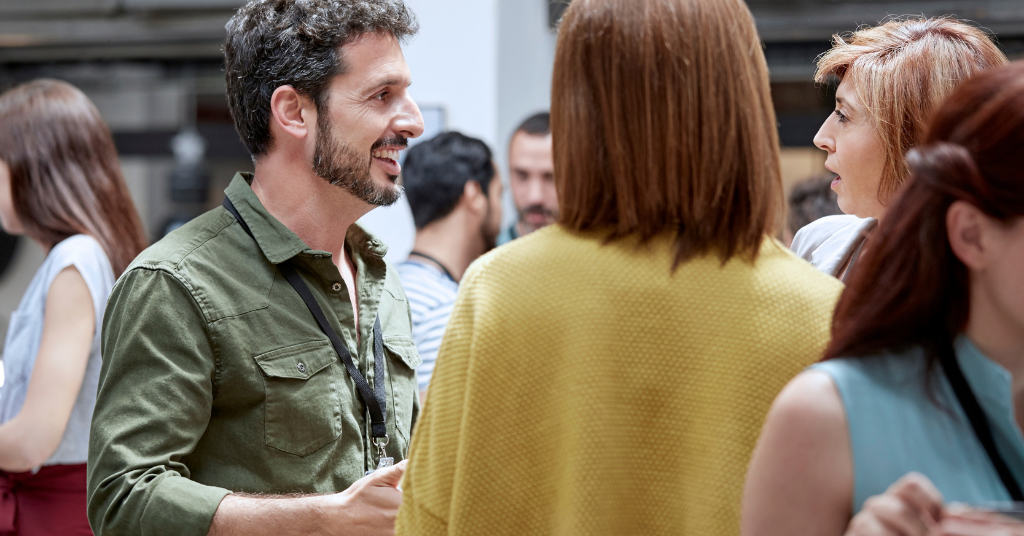
What I’m learning from my evolving deaf identity
June 15, 2020
How to advocate for your child with hearing loss
June 19, 2020What I learned doing fieldwork with a hearing loss

When I first started college, I didn’t imagine that I would end up in cornfields doing fieldwork.
However, during college I discovered digital map-making, leading me outside in the hot heat. Along the way, I learned tips for the best way to do fieldwork with a hearing loss.
My career aspirations have changed frequently throughout my life. So far, I have wanted to be a pop star, veterinarian, dolphin trainer, physical therapist, pharmacist, chemist, and Global Information Systems (GIS) technician. I went to college at the University of Wisconsin-Madison with the goal of getting into pharmacy school my freshman year. This evolved into wanting to become a chemist. Even though I passed my chemistry courses just fine, they stressed me out to no end. In my last year of school, I discovered the art of digital map-making. It was just the right blend of science and technology that didn’t make me lose my mind trying to learn it. With the prospect of applying for jobs on the horizon, I set out to get some experience with GIS outside of the classroom. I absolutely needed this experience since I had only taken a few GIS-related courses.
Finding my interest in agronomy
Senior year of college, I found myself applying to be a research assistant with the department of agronomy. I’m pretty sure I had to look up what agronomy was. Turns out it is “the science of soil management and crop production.” I grew up a city girl and though I liked playing outside, I had never worked on a farm before. The only experience I’d had in cornfields was doing corn mazes during Halloween. When I got the job, I found myself in the cornfields more often, but this time without any fun mazes.
Read more: My experience in college with hearing loss
Tips for doing fieldwork with a hearing loss
Working in the field was tough. We took our samples in the summer so it was often hot and humid. The corn leaves were scratchy so I usually wore a jacket to protect my arms. The heat was a challenge, but the greater challenge was trying to hear my boss when we were working in the field. A lot of the time, I couldn’t see him through the tall corn stalks. As a result, it was difficult to hear where the sound of his voice was coming from. I also prefer to see the person’s face when they are talking, as it makes communication easier for me. This was hard to do in the congested rows of corn stalks. It was all right if we were working independently. When our sampling required two people, it was difficult.
“The heat was a challenge, but the greater challenge was trying to hear my boss when we were working in the field.”
One day, we were collecting height measurements of the corn stalks. Since my boss was taller than me, he had the task of holding up the meter stick and calling out the heights of the corn stalks. I walked behind him and recorded the measurements on a clipboard. Many times, I had to ask him to repeat the numbers. The combination of the wind and the distance between us made hearing difficult. I felt bad asking so many times, but I also wanted our measurements to be accurate!
After enduring these challenges and having these experiences, I have tips for anyone looking to complete fieldwork with a hearing loss.
1) Tell others you have a hearing loss
I think the most important tip is to communicate with whoever you are working with that you have a hearing loss so they may need to speak louder over the plants or try to come closer when they need to tell you something. Cellphones or walkie-talkies could also be majorly helpful if you two are far apart in the fields.
2) Bring extra batteries
You should also make sure you always have extra hearing aid batteries with you to avoid not being able to hear at all while you’re stuck in the field. In my case, I was unfamiliar with cornfields so they were easy for me to get lost in. If my batteries suddenly died, it would be a recipe for disaster.
3) Protect your ears
If you are around heavy machinery, it is important to protect your ears, even if you are already have hearing loss.
I found this to happen the most when we weren’t measuring corn stalk heights, but when we were in the lab. In the lab, we would dry out the cut-up corn stalks in an oven for days. Once that was complete, I spent weeks grinding all of our corn samples. We had a special room for the grinders with a massive air filter so the air wouldn’t be engulfed in plant dust. Everything in that room was loud and dusty so we always had to wear hearing protection ear muffs and face masks to work in there.
If someone needs to speak with you while your hearing protection is in and hearing aids are out, I highly recommend letting them know that you can’t hear them. Then, take a minute to put your hearing aids in and maybe even step outside of the room to chat. That way you minimize miscommunication.
Read more: Hearing Protection
Now my days of working with agriculture are far behind me, I currently work as a chemist in a pharmaceutical lab with no heavy machinery or straining to hear what my boss is telling me in the field, which I enjoy! Ultimately, I still want to become a pop star, but we will just have to see about that.



